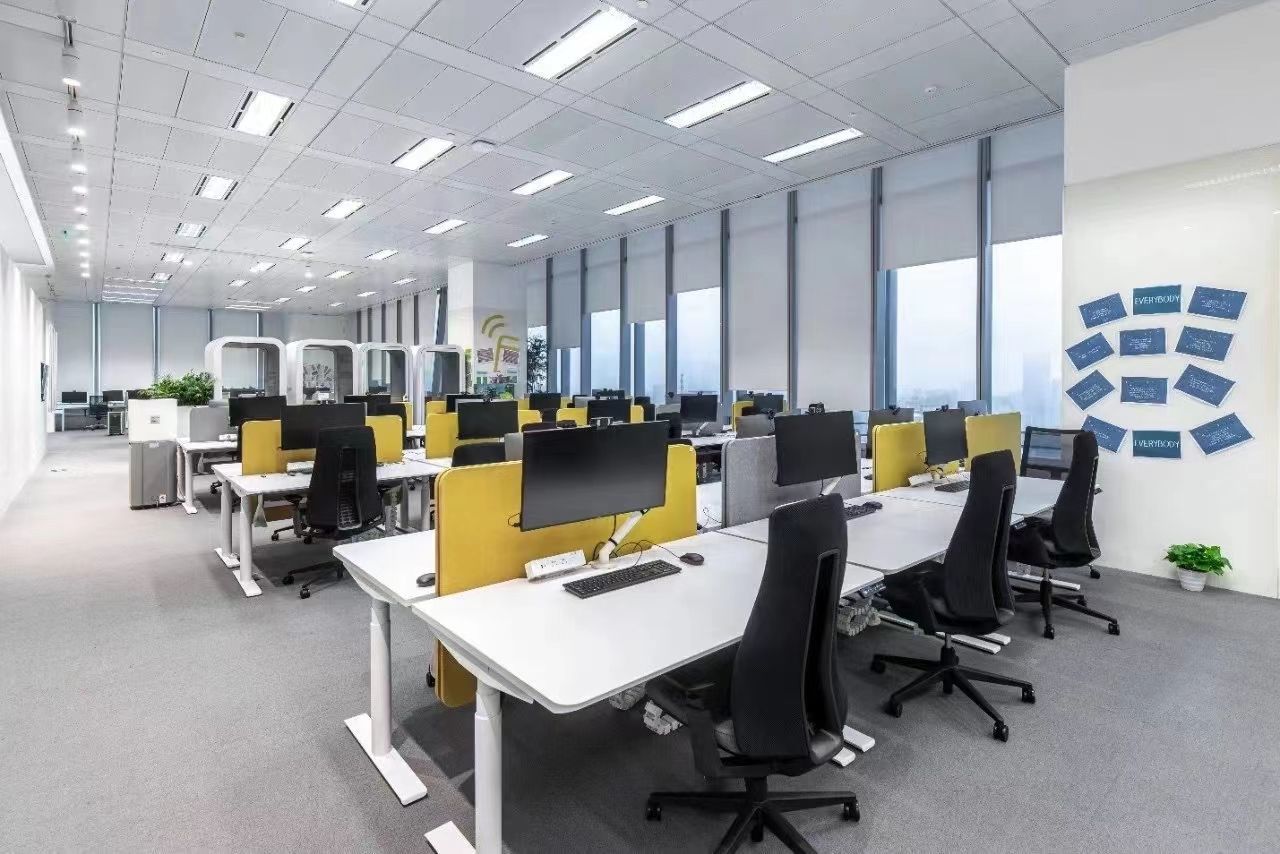Welcome to Wilson Space Furniture Co., Ltd
Toggle Navigation
Introduction:
This case study focuses on a universally appealing office furniture engineering project in Saudi Arabia.
The goal was to create a design that caters to the diverse needs of employees while maintaining functionality, comfort, and aesthetic appeal.
Case Study:
Client: Wilsonspace client Corporation
Location: Jeddah, Saudi Arabia
Design Concept:
The design concept for this office furniture engineering project revolved around incorporating universal design principles.
The aim was to create an inclusive and accessible workspace that accommodates individuals of all abilities and preferences.
Solution:
1. Ergonomic Considerations: Ergonomic furniture was selected to promote employee well-being and comfort.
Adjustable height desks, ergonomic chairs, and supportive accessories were incorporated to ensure proper posture and reduce the risk of discomfort
or injury.
2. Flexible Layout: A flexible furniture layout was implemented to accommodate different work styles and preferences.
The workspace was designed to easily adapt to individual and collaborative tasks, allowing employees to personalize their workstations according to their needs.
3. Ample Storage Solutions: Sufficient storage options were provided to maintain a clutter-free environment.
Cabinets, shelves, and drawers were strategically placed to ensure easy access and organization of documents and personal belongings.
4. Neutral Color Palette: A neutral color palette was chosen to create a calm and professional atmosphere.
Shades of white, beige, and gray were used as the base, allowing employees to personalize their workspaces with pops of color or personal touches.
Implementation:
The implementation phase involved working closely with a team of experienced designers, architects, and furniture manufacturers.
The project timeline was carefully planned to minimize disruptions to the client's operations.
Regular communication and feedback sessions were conducted to ensure the design met the client's expectations.
Results:
The office furniture engineering project successfully created a workspace that caters to the diverse needs of employees at Wilsonspace client Corporation.
The implementation of universal design principles resulted in increased employee satisfaction, improved productivity, and a more inclusive work environment.
Conclusion:
This office furniture engineering case study emphasizes the importance of incorporating universal design principles to create an inclusive and accessible
workspace. By considering ergonomic factors, flexibility, storage solutions, neutral aesthetics, and technology integration, Wilsonspace client Corporation
successfully achieved a design that appeals to a wide range of employees in Saudi Arabia.
